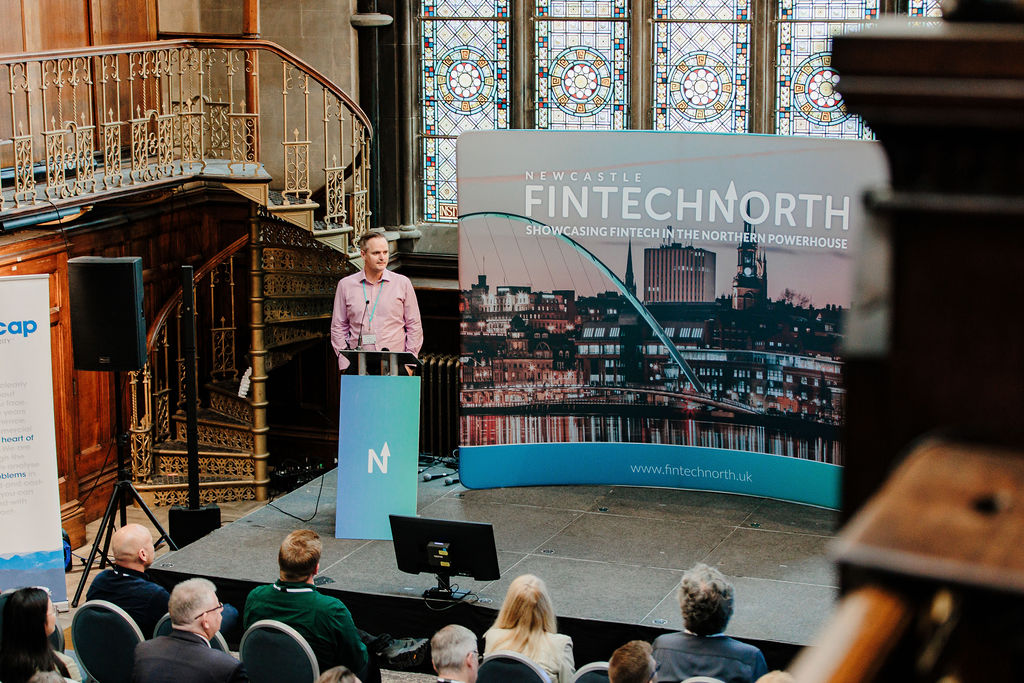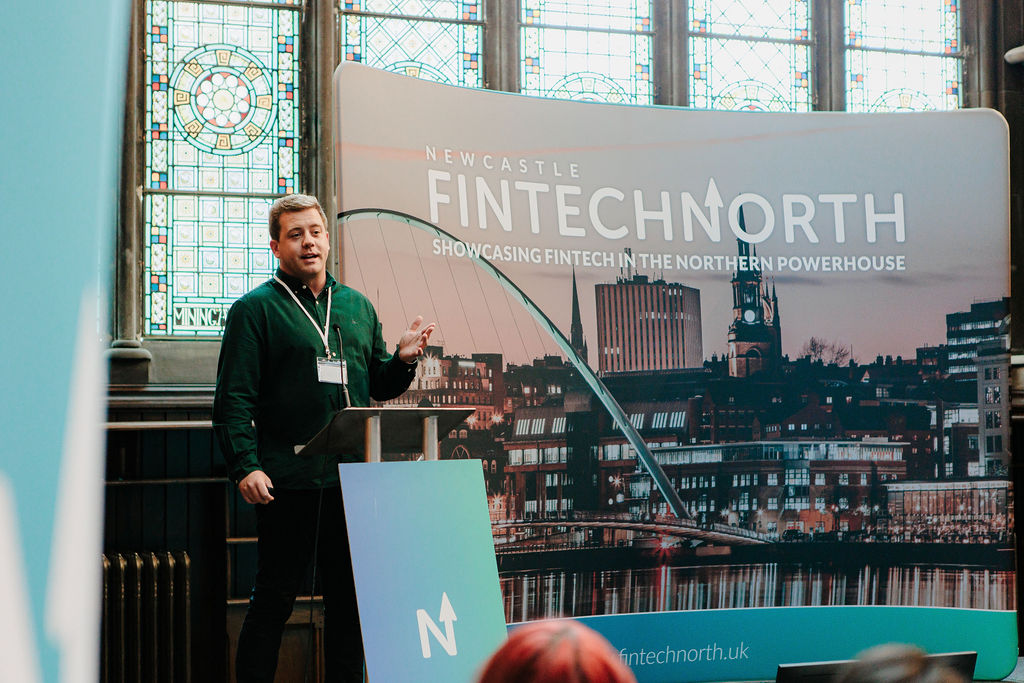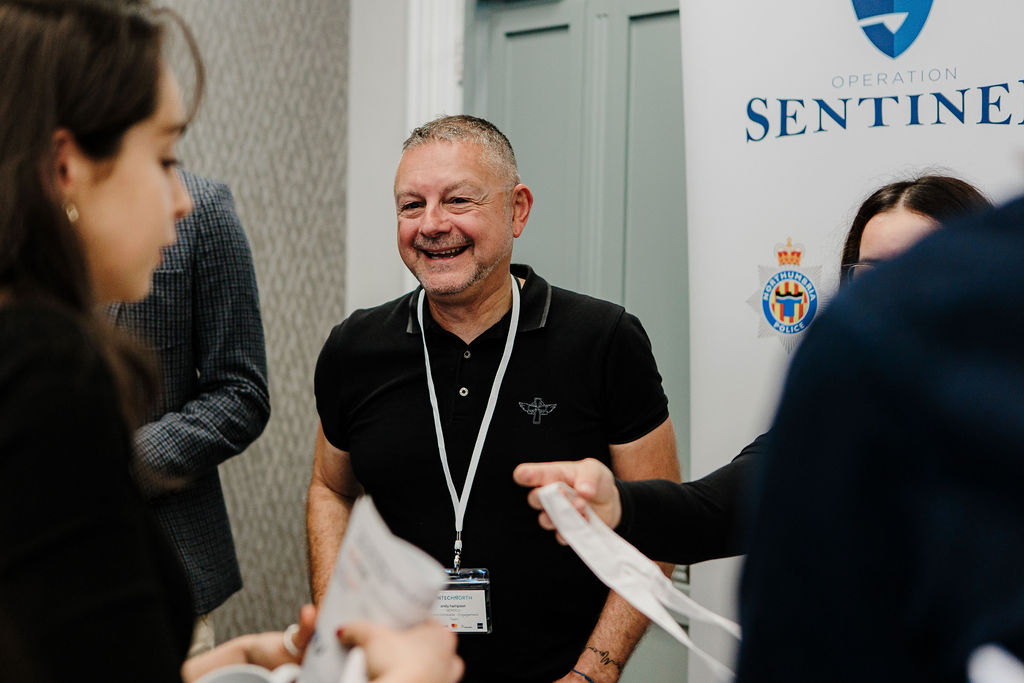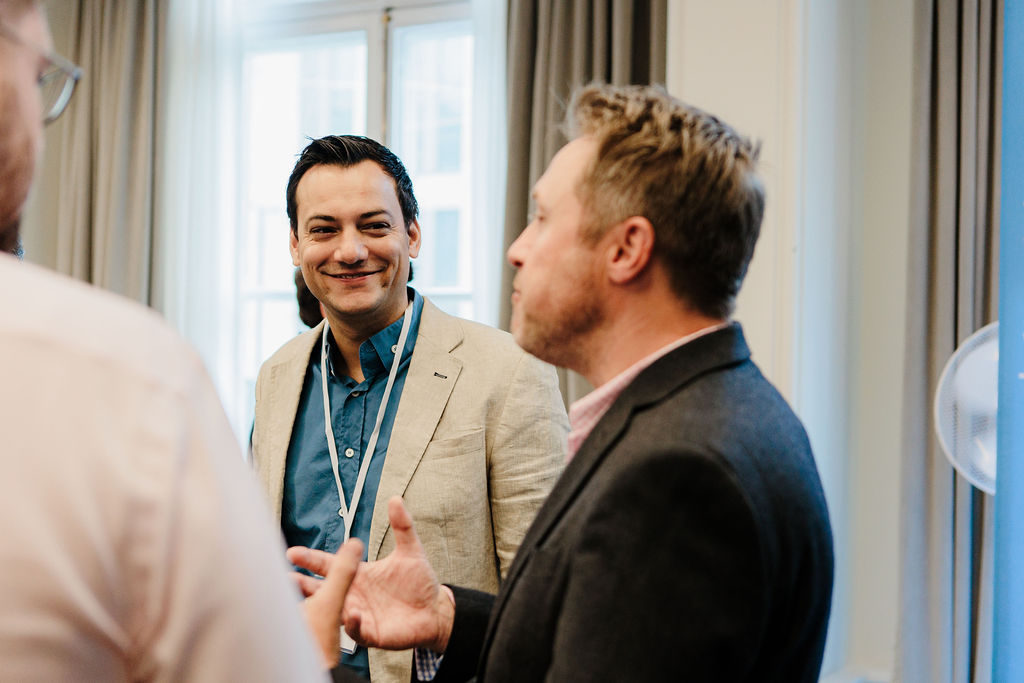Event Write-up: 1402 Manchester Cloud Forum
On Friday 14th February the FinTech North community gathered in Manchester to discuss the application and development of Cloud Technology. The first ever FinTech North Cloud Forum was hosted by RSM UK and sponsored by cybersecurity and risk mitigation experts NCC Group.
Neil Pickles, Partners FS Risk Assurance, welcomed attendees to the event on behalf of RSM UK. Julian Wells, Director of Whitecap consulting and FinTech North, welcomed attendees. Joe Roche, Engagement Manager for FinTech North, then provided an overview of FinTech North, which has hosted 53 events to date across the North.
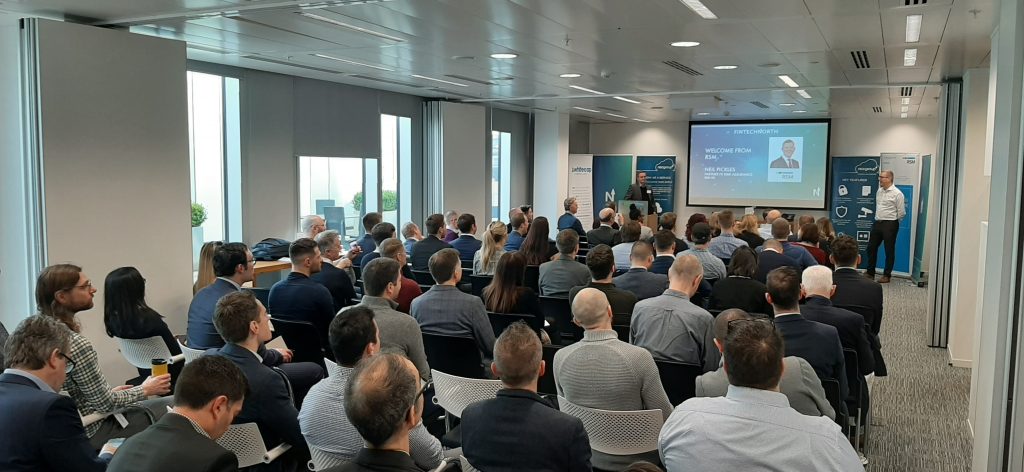
Nigel Gibbons, Associate Director and Senior Advisor at NCC Group, kicked off proceedings. Nigel explained that the digital economy is driving cloud usage. Utility computing is an enabler of transformation. The competitive advantage of cloud has shifted, using the cloud can be a disadvantage if not done in the right way. Key challenges for businesses are reviewing their identification strategy and information protection.
NCC are approaching these issues with Escrow as a service (EaaS). EaaS offers organisations the option to either access or replicate their unique cloud environment applications and data, providing assurance against software supplier failure.
Nigel Gibbons, Associate Director & Senior Advisor, NCC Group – “Resilience in a digital economy must be business led”
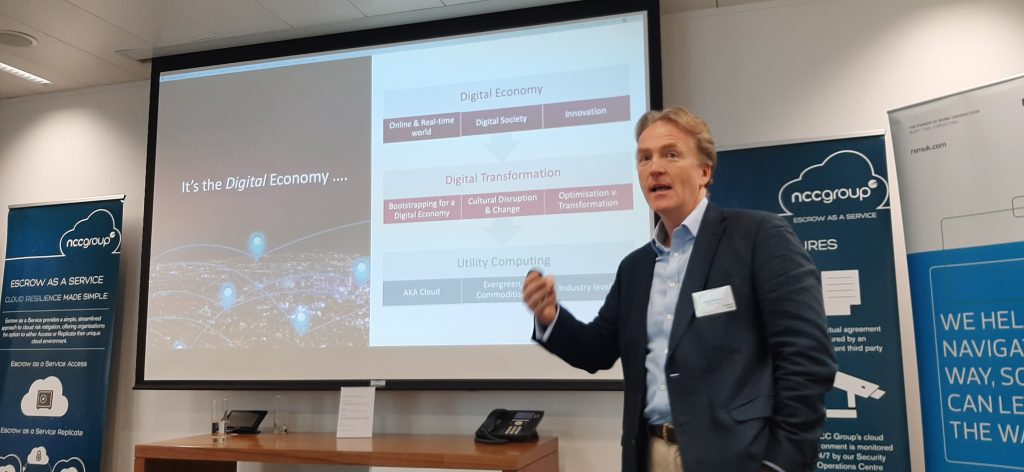
Matt Cresswell, CTO at OpenMoney, was next up. OpenMoney were founded 3 years ago originally as evestor – a low cost investment platform. However they found themselves increasingly advising people to work down their debt or increase their savings before they were in a position to invest. As a result OpenMoney was founded to make financial advice affordable and accessible to everyone.
Research carried out by OpenMoney found that 19.8m people in the UK don’t have access to financial advice.
Matt highlighted the difficulty start-ups face in identifying the Cloud services they need. OpenMoney approached cloud issues by hosting a hackathon, now the designers and the marketing teams own their website, allowing their tech team to focus on the business problems. Matt’s advice to startups is “Know what you’re using, turn off what you’re not.”
Matt Cresswell, CTO, OpenMoney – “If the developers don’t have an easy life, they can’t deliver solutions to the problem.”
Gavin Harris, Principle Consultant at Infinity Works, spoke next. Gavin asked, why Cloud transformation? Gavin framed his discussion by explaining the story of Borders and their sales which collapsed quickly in line with the smart phone revolution. Many businesses struggle to adapt in a similar way.
Gavin Harris, Principle Consultant, Infinity Works – “Agility and speed is the key benefit of Cloud technology”
The Cloud allows for experimentation and perhaps most importantly, fast failure. Cloud enables an environment where companies can innovate. Human and organisational effects of cloud migration must be considered first, include the whole business. Creating a service owning team helps boost agility.
Then we heard from Matt Gott, Head of Customer Support at Callsign. Callsign are the first id platform that uses AI to build digital DNA to simply secure people’s digital identities. Matt started by providing context behind how authentication has evolved over the past 20 years.
Matt then explained how PSD2 (March 2020) requires Strong Customer Authentication (SCA). SCA can create more friction as it adds an extra layer of authentication. It can also add vulnerability from a cyber security perspective. Matt also mentioned SS7, which is an international telecoms standard governing the way mobile networks transfer information between themselves. SS7 is 50 years old this year.
Pete Casson, CTO and Co-founder at Collctiv, then explained how Collctiv have built their FinTech from the cloud down. Collctiv, a group payments solution, would not exist without the cloud as five years ago the technology didn’t exist.
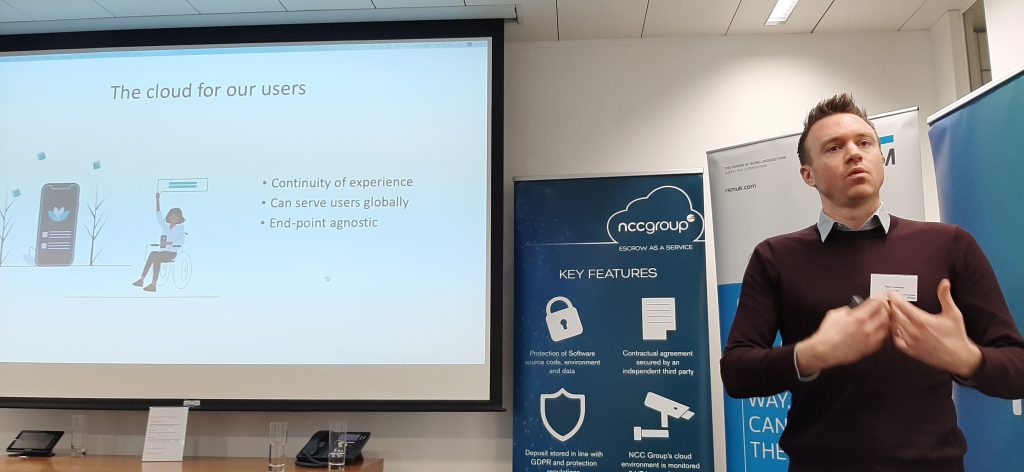
As a startup cash is king, infrastructure on premises is expensive, failure is costly and slow, unless you invest heavily you will have downtime which costs you thousands. Collctiv therefore went to the Cloud first, as they needed a platform which could scale and go into international regions overnight. From a product angle, the Cloud allowed Collctiv to scale up and dial down. It granted instant access to new tech, and it also granted more security. Lower maintenance costs and easier regulation and compliance.
Pete Casson, CTO & Co-founder, Collctiv – “Cloud first, but not always”
Pete is a big cloud advocate but doesn’t think businesses should pursue a cloud-only approach.
We then broke off into a panel discussion, chaired by Natalie Lovett, Director at Infinity Works. Our speakers were also joined by Eleanor Simmons, Consultant at Whitecap consulting.
Q: “Unclouding – what went wrong with those organisations which stepped towards cloud and are now reversing?”
Nigel Gibbons, Associate Director & Senior Advisor, NCC Group – “This talks to the two key pillars, id and data. Trusting our Identification is key, data is the other piece of the puzzle. Organisations are starting to retract data from the cloud because they haven’t got things right, rushing before they’re ready before going through key strategic reviews”
Q “Business process, from your experience is there any processes that come up time and time again and need addressing?”
Gavin Harris, Principle Consultant, Infinity Works – “A good example would be change request, moving into an impact based analysis, you need to take a nuanced view of the risk of making these changes in cloud software”
Matt Gott, Head of Customer Support, Callsign – “Version control is really important too, we’ve seen versions get out of step, we’ve seen a sit-in environment behind development environments”
Q: “Delivering rapid change and adhering to regulation, what are the difficulties there?”
Matt Cresswell, CTO, OpenMoney – “Firstly, it’s difficult. We have a risk framework, we use Octopus deploy, a really good tool to manage your version up until deployment. Being open around what you accept as a risk”
Pete Casson, CTO & Co-founder, Collctiv – “We don’t ever touch the money, but we adhere to the regulations. As a startup, our appetite for risk is a key question. Our data is our customers data. Making sure we comply despite the fact that directly we are not regulated.”
Q: What’s going on in the Manchester FinTech ecosystem?
Eleanor Simmons, Consultant, Whitecap consulting – “Our report is out in a couple of weeks and is based around a series of over 40 FinTechs in Manchester. Our tech sector in Manchester is in a really good place, but one of the key issues that comes out is the funding one. Investors often don’t necessarily have their head around the technical aspects of FinTech including cloud usage. We need to create an infrastructure in Manchester where the investors are fully informed”
Q “How do you facilitate old world and new world (legacy systems at banks which are over 20 years old)”
Nigel Gibbons – “One of the ways we’re supporting FinTechs is by providing that resilience which allows the new service to go to market, providing continuity. The other aspect is an understanding and awareness of the environment you’re going into. When you abstract into the new environment you get hit with all their headaches because they’re still using AWS”
Matt Cresswell – “To add to that, Open Banking and similar regulation are open standards, the first thing you want to do as a dev is add abstrations. The regulation gives the devs the opportunity. It’s a big opportunity, it will be interesting to see what happens when the incumbents catch up, if they do.”
Q: we’ve talked about People, how important are they when implementing the cloud?
Matt Gott “People work for people, they don’t work for organisations”
Nigel Gibbons – “Understanding and awareness, making sure people fundamentally understand how and why change is happening. Cloud centres of excellence can help with awareness and education. People and culture need to be brought along with the transformation.”
